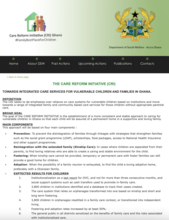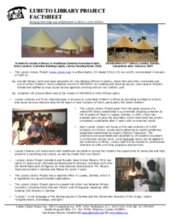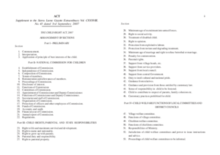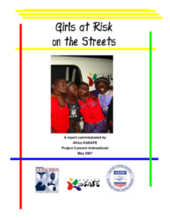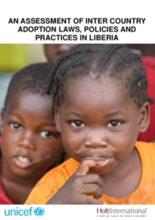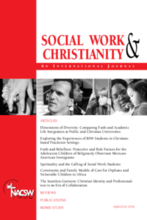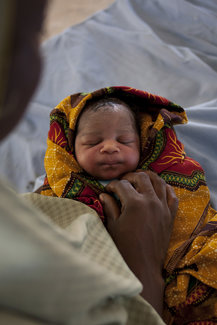

Displaying 561 - 570 of 634
The first International Conference on Sexual Abuse of the African Child will be held in Nairobi, Kenya from 24–26 September 2007. The aim of the conference is to advance knowledge regarding the various types of sexual abuse and their complexity in the cultural settings of Africa.
Josephine Morgan comes from a poor family in Liberia. Her father, hoping for a better life for his children, agreed to an offer made by the head of an orphanage to take Josephine, her sister and her young brother.
This document offers a brief overview of the Care Reform Initiative in Ghana: “Every child deserves a family” July/Aug 2006- August 2007.
This document is intended to provide concrete advice on how to put the guiding principles common to most child protection actors into practice. Though cultural traditions and customs may require the advice to be adapted to the specific context, the authors believe that the advice provided is grounded in sufficiently broad experience to guide measures that ensure children under five are not separated when this can be avoided, and, if separated, can be reunited with their families as quickly as possible.
The aim of this report is to review international human rights norms as well as Liberian legislation, and to assess the compliance of orphanages with those standards.
The Lubuto Library Project seeks to fill an important gap in services to vulnerable children in Africa by providing a bridge to schools and social services otherwise beyond their reach.
The Child Rights Act of 2007 provides for the promotion of the rights of the child compatible with the Convention on the Rights of the Child, adopted by the General Assembly of the United Nations on 20th November, 1989, and its Optional Protocol of 8th September, 2000, and the African Charter on the Rights and Welfare of the Child, and for other related matters.
A report that identifies gaps and provides recommendations for protecting and supporting girls living on the streets. It provides models of good practices from Ghana, Kenya and Zimbabwe.
This report presents the findings of an assessment conducted between 8 July and 22 August 2006 that gathered and analyzed information on inter-country adoption to support strengthening Liberia’s adoption laws and develop operating guidelines for adoption agencies.
Unites scripture and evidence to help guide North American Christians in responding the needs of children affected by HIV/AIDS. Identifies the shortcomings of institutional care and outlines specific and better alternatives available for supporting children in Africa. Highlights related resources for follow-up.

